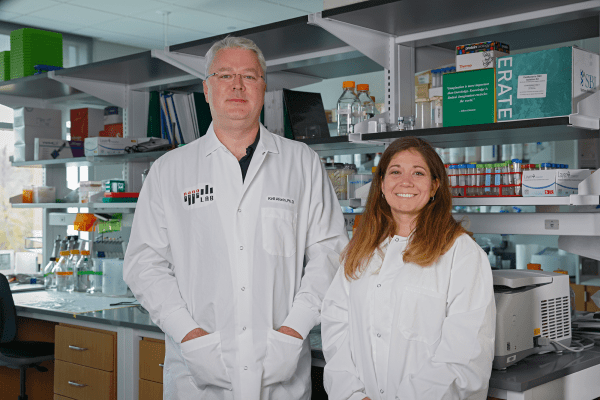KCOS researchers Afonin and Johnson in Newswise: Reimagining Personalized Medicine with AI-Cell

Kirill Afonin, Ph.D., professor of chemistry, and M. Brittany Johnson, Ph.D., assistant professor of biology, were featured in Newswise for their research on nucleic acid nanoparticles (NANPs), which are highly effective in drug or vaccine delivery.
The Klein College of Science researchers, along with Drs. Dobrovolskaia’s (NCI) and Zakharov’s (NCATS) teams, have developed new applications for Artificial Intelligence Cells. AI-Cell uses artificial intelligence to quickly select the appropriately shaped nanoparticles that can deliver targeted treatments personalized to an individual’s DNA.
“If designed correctly, your body will recognize these artificially made NANPs as its own components, which can initiate and guide various biochemical processes and help fix the problem from within,” Afonin said. “The big idea is to develop a biomolecular language to explain to our bodies and immune system how to reveal and deal with certain diseases – and make this technology user-friendly, widely available, personalized, and affordable.”
The NANPs can fold in specific, predictable ways, and quickly selecting the correct shape to generate the intended immune response helps target the therapy to the precise location.
“The immune system is a very complex process,” Johnson said. “A lot of times we think the immune response is always productive. In reality, it’s a little bit more like a see-saw and you want things to be in balance.”
“You need peaks at certain times… and you want that immune response to have certain qualities. And then you want that to resolve so that you can go through a healing process,” Johnson said. “You have to be cautious because you could stimulate an unwanted immune response.”